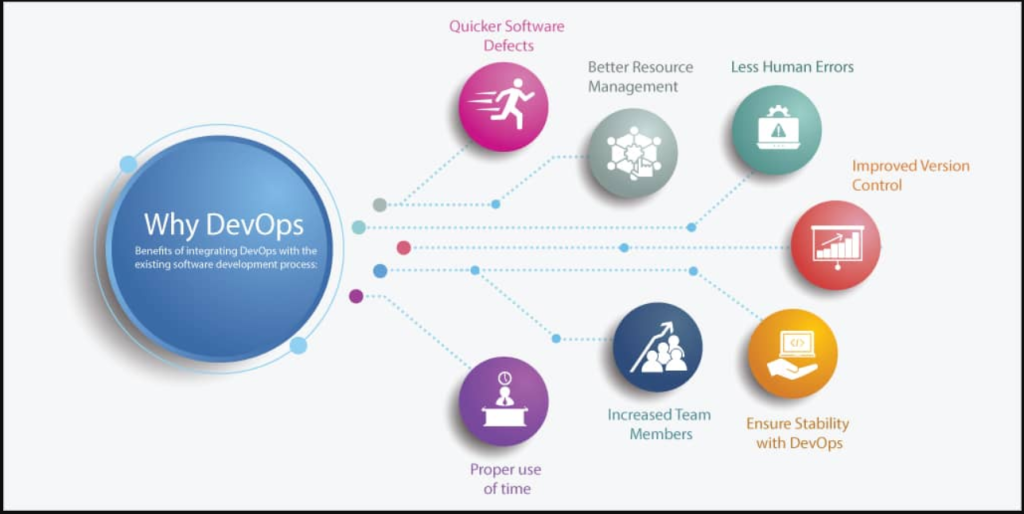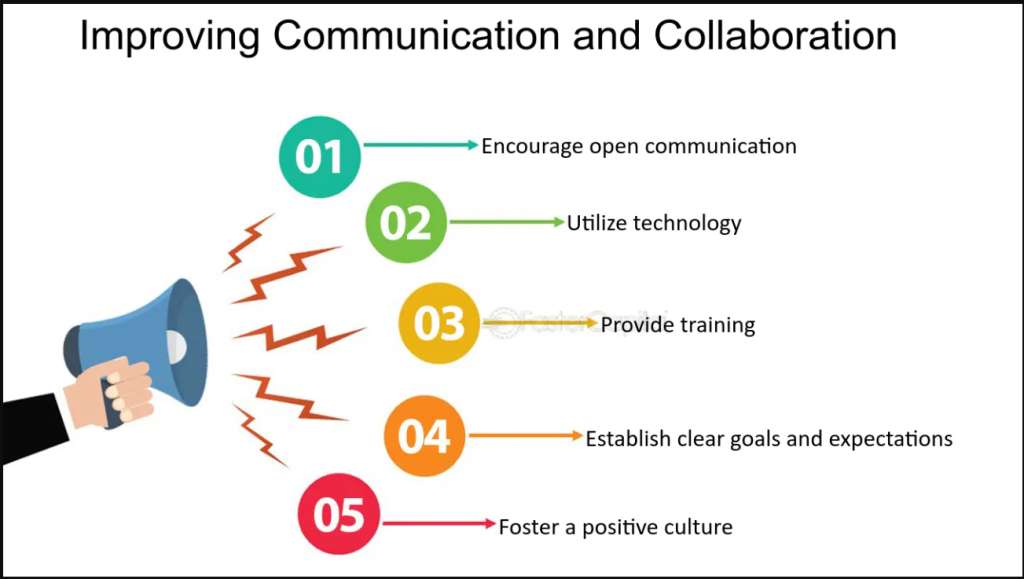Upgrade & Secure Your Future with DevOps, SRE, DevSecOps, MLOps!
We spend hours on Instagram and YouTube and waste money on coffee and fast food, but won’t spend 30 minutes a day learning skills to boost our careers.
Master in DevOps, SRE, DevSecOps & MLOps!
Learn from Guru Rajesh Kumar and double your salary in just one year.

DevOps is more than just a set of practices or tools; it is a cultural transformation that revolutionizes how organizations approach software development and IT operations. As businesses increasingly demand faster, more reliable software delivery, DevOps has become an essential methodology for improving collaboration, automating workflows, and ensuring high-quality software releases.
In this post, we will explore why DevOps is important, focusing on the benefits it brings to organizations and how it helps businesses stay competitive in today’s fast-paced tech environment.
1. Increased Speed and Efficiency
Major Features:
- Faster Time to Market:
- DevOps accelerates the development lifecycle by promoting continuous integration (CI) and continuous deployment (CD). This allows organizations to release software faster and more frequently, ensuring that new features, fixes, and updates reach customers quickly.
- Automation of Repetitive Tasks:
- DevOps automates routine tasks such as testing, deployment, and infrastructure provisioning, which frees up developers and operations teams to focus on more complex tasks. Automation increases efficiency and reduces the risk of human error.
- Quick Feedback and Iteration:
- Continuous feedback from automated testing and real-time monitoring helps teams identify and address issues promptly. This rapid feedback loop ensures that software is continuously improved and refined.
- Agility in Development:
- DevOps enables organizations to respond to market changes more quickly, helping them adapt to customer needs and technological advancements without long delays.

2. Improved Collaboration and Communication
Major Features:
- Cross-Functional Teams:
- DevOps fosters collaboration between traditionally siloed teams—development, operations, and QA. These cross-functional teams work together toward common goals, ensuring that all aspects of the software lifecycle are aligned and well-coordinated.
- Shared Responsibility:
- In a DevOps environment, shared ownership of both development and operational tasks means that developers are responsible for the software’s performance in production. This shared accountability enhances communication and reduces misunderstandings.
- Breaking Down Silos:
- DevOps eliminates the barriers between departments, enabling continuous communication, shared goals, and joint problem-solving. This leads to greater transparency and improved decision-making throughout the development process.
- Better Coordination:
- With tools like Slack, Jira, and GitLab, DevOps ensures that teams can coordinate effectively, providing a seamless flow of information, feedback, and updates across departments.
3. Higher Quality and Reliability
Major Features:
- Continuous Testing and Validation:
- DevOps emphasizes automated testing at every stage of the software development lifecycle. This helps identify bugs early and ensures that only high-quality code reaches production.
- Reduced Downtime:
- With continuous monitoring and proactive issue detection, DevOps teams can identify and address system failures or performance degradation before they impact users, ensuring that applications run smoothly and with minimal downtime.
- Improved Security:
- Through the practice of DevSecOps, security is integrated into the DevOps pipeline from the very beginning. Continuous security checks ensure that vulnerabilities are detected and mitigated early in the development process, leading to more secure applications.
- Reliability and Scalability:
- By automating deployments and leveraging cloud-based infrastructure, DevOps ensures that software is scalable and reliable, capable of handling fluctuating demand without performance issues.
4. Cost Efficiency and Resource Optimization
Major Features:
- Optimized Resource Usage:
- DevOps helps organizations maximize the value of their resources. By automating processes and improving collaboration, DevOps ensures that teams can make better use of computing resources and cloud infrastructure, leading to cost savings.
- Reduced Waste and Redundancy:
- By streamlining workflows and reducing manual tasks, DevOps eliminates redundant processes and minimizes waste. This leads to more efficient use of both human resources and IT infrastructure.
- Predictable Costs:
- DevOps practices, such as infrastructure as code (IaC), allow organizations to more accurately forecast infrastructure costs by automating provisioning and scaling. This predictability helps businesses avoid unexpected IT expenses.
- Faster Incident Recovery:
- In case of failures or performance issues, DevOps enables faster recovery times by automating failover systems and providing quick access to logs and monitoring data. This reduces downtime and minimizes the costs associated with outages.
5. Enhanced Customer Satisfaction
Major Features:
- Faster Feature Releases:
- DevOps allows organizations to release new features and updates more frequently, meeting customer demands promptly. Faster feature delivery enhances the customer experience and keeps users engaged with the product.
- Proactive Issue Resolution:
- Continuous monitoring and real-time alerts enable DevOps teams to quickly address customer-reported issues. Proactive resolution of issues leads to greater user satisfaction and improved service quality.
- Adaptability to Feedback:
- DevOps encourages continuous interaction with customers and stakeholders, ensuring that feedback loops are established. This allows organizations to adapt and refine their software based on real-time user input.
- Customer-Centric Focus:
- With DevOps, businesses can ensure that the software development process is always aligned with customer needs and market changes, leading to products that better meet customer expectations.
6. Innovation and Continuous Improvement
Major Features:
- Continuous Experimentation:
- DevOps encourages a culture of experimentation and innovation. Teams are encouraged to test new ideas, integrate user feedback, and constantly improve their products and processes.
- Iterative Development:
- Through short feedback loops and small iterations, DevOps supports the continuous release of new features and updates. This iterative approach allows organizations to evolve their products over time, incorporating new technologies and adapting to changing market conditions.
- Faster Time-to-Market for Innovations:
- DevOps enables teams to release innovative products and features faster. By automating development, testing, and deployment, companies can bring new ideas to market more quickly, ensuring they stay competitive.
- Cultural Mindset of Improvement:
- DevOps is centered on a culture of continuous improvement. Teams are encouraged to seek out better ways to deliver software, optimize systems, and drive innovation.
The Importance of DevOps in Modern Software Development
DevOps is no longer just a trend; it has become a critical methodology for organizations seeking to stay competitive in today’s fast-paced, technology-driven world. By fostering collaboration, automating processes, improving quality, and enabling faster releases, DevOps helps organizations meet the demands of modern software development and IT operations.
Whether it’s improving speed, enhancing reliability, cutting costs, or increasing customer satisfaction, DevOps provides a significant business advantage. As companies continue to embrace DevOps practices, they are better equipped to handle the challenges of digital transformation and succeed in delivering high-quality, innovative products.